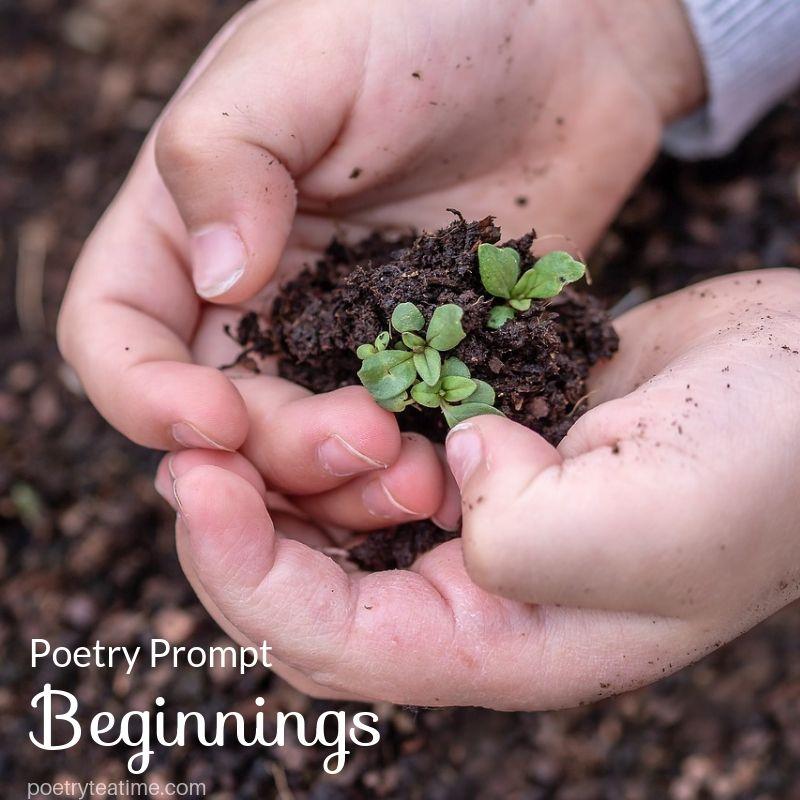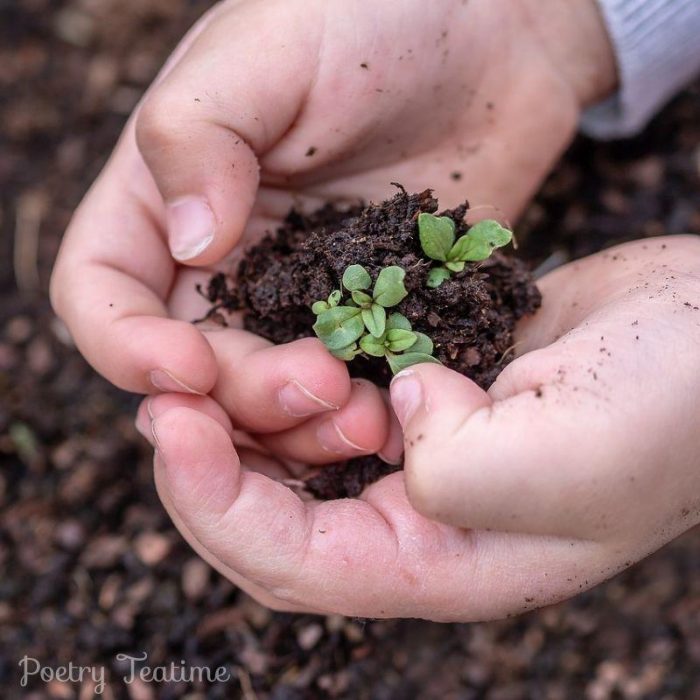Have you ever felt overwhelmed by the start of something new? Maybe it's something you've never tried before and you don't know where to start. Maybe you have too many ideas and can't narrow them down.
Today, we'll be de-mystifying one part of the poetry writing process: beginnings. If you've never written a poem before, today's the perfect chance to start!
How do you begin a poem? Let's take a look at some first lines for inspiration.
- "Much have I travell'd in the realms of gold" (John Keats, "On First Looking into Chapman's Homer")
- "Because I could not stop for Death – / He kindly stopped for me –" (Emily Dickinson, "Because I could not stop for Death")
- "Once upon a midnight dreary, while I pondered, weak and weary" (Edgar Allan Poe, "The Raven")
- "Spades take up leaves / No better than spoons" (Robert Frost, "Gathering Leaves")
Poems can start with a character: Dickinson, Keats, and Poe write about someone traveling, pondering, or stopping. Dickinson even includes a second character, Death.
Poems can also start with a description: Frost's beginning looks at spades and how they can't really scoop up fall leaves.
So, the first choice you'll make in your poem is whether you want to tell a story with characters or describe something. (In our "How to Read a Poem" series, we call these two types of poems "What-Happens" and "What-Is" poems.)
Let's try this out. Write a few opening lines about a character, and a couple describing something. For example...
- I found a cape outside my door / Waiting, folded, on the floor
- When I worry I count my freckles.
- The dragon sits on the castle turret / Just out of sight.
- Fall lands softly in the treetops, / A touch of red perching on a single leaf / Before it flaps its wings and spreads
- The clouds are wolves howling across the sky
If you're stuck for an idea, try writing about a time when you began something. Are you beginning a new year of school? Write about that. How about the first time you met a friend? When you started playing an instrument or a sport?
Write more opening lines until you find one that grabs your attention. Then, keep writing. How does the poem continue? How does it end?



